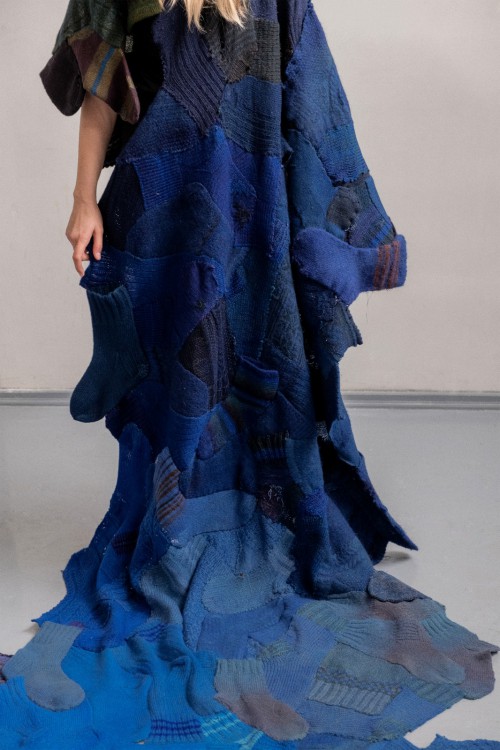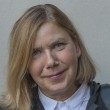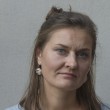About
IF YOU WANT TO MEND THE WORLD, START MENDING SOCKS
“Mending” the world is now more relevant than it ever was.
The world is falling apart at the seams and breaking up into pieces. Boundaries are violated, many political and economical formations are unravelling. Resources have been overused by mass production, and not much is left for the future generations.
Researching the habits of our senior generation who have seen war, deportations, scarcity, we conclude that using things for a long time and fixing them could be one of the most rational solutions in the current climate change situation.
Socks were chosen as a metaphor for any product of the 21st century that supports everyday consumption. Socks are one of the simplest and most indispensable garments in contemporary and ancient ethnography. They are also a benchmark of value in various contexts.
Latvia has a centuries-old tradition of giving socks to newborn babies, to the sick, to soldiers heading into battlefield. Socks are one of the first garments in a person’s life, a companion in the happiest and the most complicated moments in life, and they are donned even on the last journey.
The life cycle and identity of a sock is depicted in consecutive stages – as it is knit, worn, worn out and mended. The golden thread is an allegorical message on how valuable a sock is – in terms of resources, time, and skills put into it, in an economic and emotional sense, and why it is worth mending.
The socks are copies made from originals kept at the National History Museum of Latvia, they are dated the second half of the 18th century and come from different regions in Latvia. The cuff is knit with naturally dyed wool yarn in geometric patterns. There are no two socks alike in the museum collection, the cuff is the identity and the distinguishing code of each sock.
When you’re mending a sock you’re mending the world. Every one of us can do it!
Start consuming less, fixing your things and noticing the outsized ecological footprints left by your insatiable desire to consume!
Our project is about mending the world, about care, preservation, passing things on. It is a collaboration between the Art Academy of Latvia, Sigulda Culture Centre “Siguldas devons”, Mālpils Culture Centre and artisans from the region, part of the BaltSe@nioR 2.0/ Interreg Baltic Sea Region project No.R081.
Conceived and curated by:
Barbara Ābele barbara.abele(abols)lma.lv,
Ieva Krūmiņa ieva.krumina(abols)lma.lv
Participants:
Faculty members of the Art Academy of Latvia:
Barbara Ābele, Art Academy of Latvia, Professor at Functional Design department
Ieva Krūmiņa, Art Academy of Latvia, Head of Textile Art department, Professor
Irēna Andrejeva, Art Academy of Latvia, Senior lecturer at Textile Art department
Liene Jākobsone, Art Academy of Latvia, Head of Interior Design department
Matīss Zvaigzne, Art Academy of Latvia, Head of Graphic and Packaging Design department
Ilze Dobele, Art Academy of Latvia, Guest lecturer at Design faculty
Maija Rozenfelde, Art Academy of Latvia, Head of Design faculty
Vineta Kreigere, Art Academy of Latvia, BaltSe@nioR 2.0 project manager
Jānis Gailītis, Art Academy of Latvia, Head of Project and Development department
Jānis Auniņš, Art Academy of Latvia, Head of Design Innovation and Technology Lab
Laura Ozola, Art Academy of Latvia, Head of Public Relations
Students of Textile Art, Interior Design, Graphic design departments at the Art Academy of Latvia:
Šarlote Baškevica – MA student at Textile Art department
Una Valtere – PhD student at Textile Art department
Ilona Valaine-Blekte – MA student at Textile Art department
Dace Grīnberga – MA student at Textile Art department
Maruta Konceviča – MA student at Textile Art department
Karīna Auziņa – BA student at Interior Design department
Ketlīna Priede – BA student at Graphic and Packaging Design department
Beatrise Lasmane – MA student at Functional Design department
Sigulda Culture Centre “Siguldas Devons”:
Zanda Dūdiņa-Spoģe – Sigulda Culture Centre “Siguldas Devons”, deputy director for professional and grass-roots collective work
Artisans from Sigulda region (Sigulda, Mālpils, More):
Inguna Sīmansone – Head of the Folk Applied Arts studio “Urga” at Mālpils Culture Centre
Lauma Krastiņa, Agnese Kantiševa, Gundega Ozola – members of the Folk Applied Arts studio “Urga” at Mālpils Culture Centre
Gundega Pētersone – Head of the Applied Arts studio “Handcrafters from More” at More Folk Centre
Tija Špaca – member of the Folk Applied Arts studio "Vīgrieze" at Sigulda Parish Culture House





